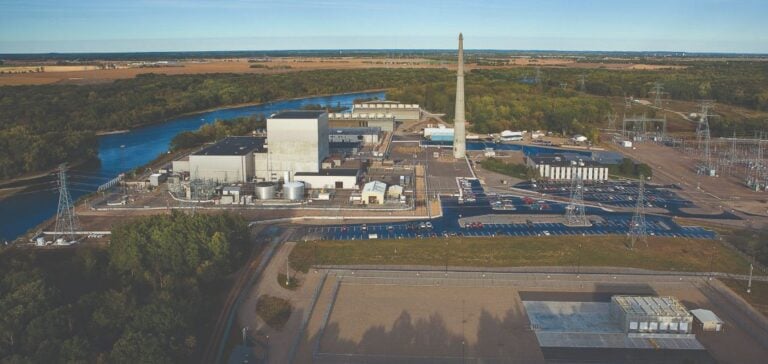The United States Nuclear Regulatory Commission (NRC) has granted a subsequent license renewal to the Monticello nuclear power plant located in Minnesota. This decision, announced in the Federal Register, extends the plant’s operations until 2050. The renewal follows a thorough process, including technical inspections and audits assessing environmental impact and equipment aging management.
The license renewal adheres to the strict procedures mandated by the Atomic Energy Act. This federal law allows initial operations of commercial nuclear reactors for 40 years, with the possibility of renewal in 20-year increments. Monticello previously received its first renewal in 2006, which allowed operations until 2030. This second renewal enables operations to reach 80 years, contingent on continued compliance.
A key role in energy supply
The Monticello plant, operated by Northern States Power Company, a subsidiary of Xcel Energy, plays a strategic role in the region’s electricity production. With its capacity recently increased from 600 to 671 MWe through significant investments, the plant powers approximately 500,000 homes. This expanded capacity strengthens its contribution to the stability of Minnesota’s electrical grid while maintaining competitive costs for consumers.
However, operations beyond 2040 will require additional approval from the Minnesota Public Utilities Commission. The company will need to demonstrate that the plant continues to meet safety and environmental requirements to secure this authorization.
A demanding regulatory framework
Managing aging nuclear plants represents a critical challenge for the U.S. nuclear sector. The NRC imposes strict criteria for license renewals, particularly in assessing wear on critical components and environmental impacts. These standards aim to ensure that extended plants meet safety, efficiency, and sustainability goals.
Prospects for U.S. nuclear energy
The case of Monticello highlights a growing trend to maximize the lifespan of existing nuclear facilities. In addition to this plant, Xcel Energy plans to submit a similar application for its other site, Prairie Island, by the end of 2026. This strategy reflects an increasing need to secure the nation’s energy capacity amidst climate challenges and tensions in energy markets.






















